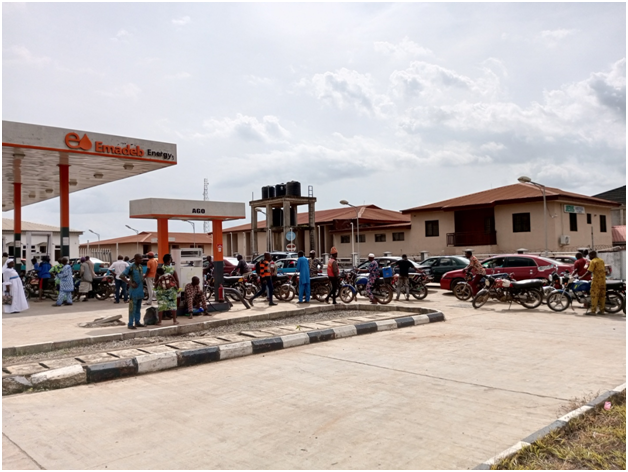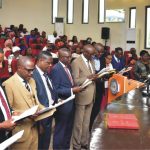Looting: Hardship or Thieving?

THE wave of looting of food items in warehouses and parked trucks in public places has sent jitters down the spines of traders and companies that need to move their products from one location to another. The development has also posed new economic challenges, in addition to the unpalatable ones precipitated by the removal of fuel subsidy and the floating of the naira. In the last few days, there were reported cases of people that broke into a warehouse in the Gwagwalada area of the Federal Capital Territory, and carted away foodstuffs, the doors of the warehouse, as well as the roofing sheets.
AMIDST the protests staged across the country, that some citizens used to express their angst about the spiraling inflation that took basic food items out of the reach of ordinary Nigerians, there were claims at different parts of the country that some citizens looted trailers conveying food items. The invasion and looting of warehouses were prevalent in 2020, when there was wide-spread looting of government warehouses across the country, purportedly in response to the hardship occasioned by the economic disruptions caused by COVID-19.
THE recent cases of looting, which have been described as looming anarchy, also recorded a mark in Dogarawa community, a suburb of Zaria on Kaduna State, where residents were allegedly said to have looted cartons of spaghetti from a parked truck belonging to BUA Company. A ridiculous dimension was introduced to the cases of hardship-related stealing by the news of Adua Fatogun, a 19-year-old tailor that was remanded for allegedly stealing a pot of soup and other household items. In short, the picture painted above shows that Nigerians are hungry, and life is now more difficult for people, with survival remaining what is on the lips of everybody. Workers, both in the private and public sectors, are groaning, as their salaries cannot take them home. With the biting economic challenges, businesses are dying, even as many industries have folded up, with farming reduced drastically, because of insecurity.
HOWEVER, we are of the view that whatever hardship people may be passing through does not justify looting and criminality. To this end, The Hope strongly resents and condemns this development, as it is no looting but robbery. There is no justification for the breaking into someone else’s facility to steal. Rather than resorting to this ignoble attitude of looting, we expect the current hardship should challenge citizens’ ingenuity to provide creative solutions.
NOTWITHSTANDING the expanded pauperisation that has economically diminished the people, and harvested more Nigerians into the poverty bracket, we must rekindle the place of humanity, and centralise the wellbeing of one another. People must be ready to share from the little they have. As the farming season approaches, Nigerians should return to the farm, and cultivate the initiative of supporting the growth of the nation’s food basket.
TO forestall future occurrence of these mindless criminal lootings, security agencies should be mobilised to provide protection for critical economic interests of people in the production sector, particularly manufacturing, transportation and distribution chains. Similarly, looters that are caught in the act should be made to face the full weight of the law. Industrialists and traders that have to move and store commodities should ensure they insure their businesses, in order to be able to mitigate losses, when it becomes inevitable.
ON their part, government should take urgent steps to arrest the economic drifts, and the attendant challenges of security breech, before the present looting leads to anarchy.












